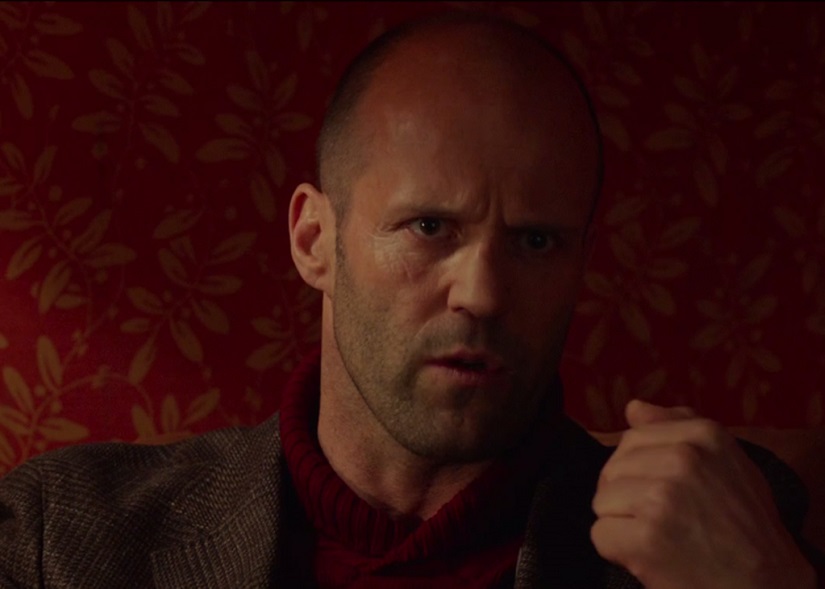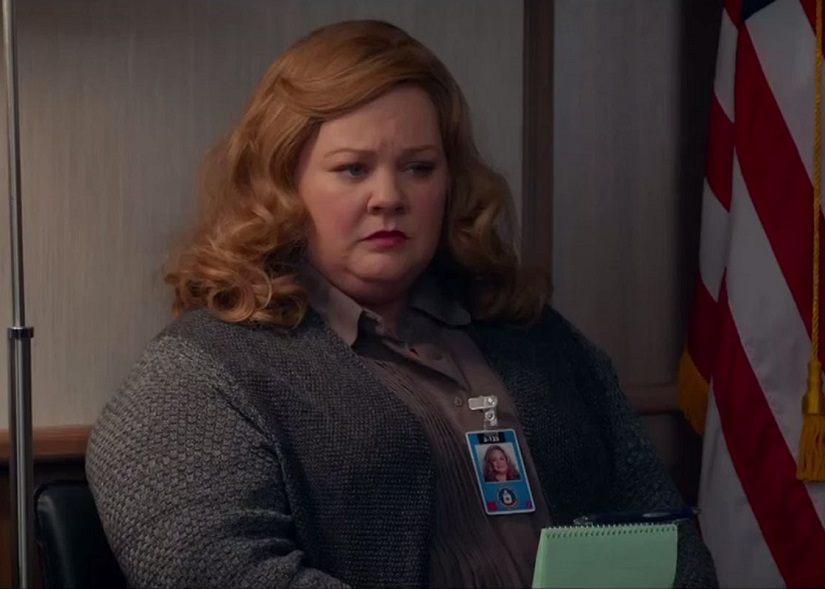After achieving stardom with her standout performance in Bridesmaids, Melissa McCarthy has become a divisive figure, at once a reliable box-office draw while being frequently accused of only being able to play one type of character and one style of comedy. Spy is her third collaboration with director Paul Feig, for whom she will also be headlining the female version of Ghostbusters in 2016. Her work with Feig has generally coincided with her best reviews, with the pair sharing a fondness for subversive, proto-feminist genre spoofs.
Those who have found McCarthy’s schtick offputting in the past won’t find much to win them round in Spy, an uneven but occasionally amusing bounce through the familiar stable of spy movie clichés. McCarthy’s character, Susan Cooper, certainly fits comfortably into the actress’ pantheon, exhibiting the expected reliance on pratfalls and foul-mouthed tirades that both fans and detractors have come to expect. What elevates Cooper above the likes of Tammy Banks, of the dreadful eponymous 2014 vehicle which deservedly earnt McCarthy many of her worst notices, is a willingness to allow McCarthy to explore a more outwardly vulnerable, yet secretly competent, side to her familiar persona.
[youtube id=”mAqxH0IAPQI”]
Spy
Director: Paul Feig
Rating: R
Release Date: June 5th, 2015
As would appear to be the case with the upcoming Ghostbusters, and was to an extent also true of the previous Feig-McCarthy team-up, The Heat, Spy‘s most noteworthy trick of genre subversion is casting women in roles typically occupied by men. This idea drives the narrative more than might be expected. Cooper starts out as a highly skilled if unconfident CIA analyst, whose job is to support superspy Bradley Fine (Jude Law) via earpiece with all the information he needs to know to complete his missions, while she watches from the safety of her desk via camera and satellite feeds. When Fine and all the CIA’s other agents are compromised, Cooper, the only agent unknown to the enemy, is sent out into the field by her boss (Allison Janney) to retrieve a nuclear weapon before Rayna Boyanov, daughter to a deceased supervillain, can sell it on the black market.
The idea of women taking over a traditionally male game is a rich one, but Spy doesn’t offer as much of an original take on the genre as hoped. The movie ventures little towards exploring what unique approaches and challenges a woman, especially a ‘plus-sized’ woman, might face in the field – the only exception being Cooper having to fend off the advances of Peter Serafinowicz’s lecherous Italian agent, which is never as funny as the movie seems to think it is and Peter Serafinowicz seems mildly embarrassed to involved. The female friendship angle is fun and affectionate, but has limited impact on the main plot beyond bringing hero and villain together. Instead, the same spy tropes which have provided easy fodder for spoofs since the James Bond phenomenon came into being in the mid-sixties are dusted off for another airing, even if most of them have long since been left behind in the genre’s modern iterations and were already more effectively and lovingly sent up in the first Austin Powers movie. Cooper’s competence is very welcome, encouraging viewers to laugh with rather than at, but has been an integral part of creating a likeable goofball spy ever since, to a less obvious extent, Get Smart.
The presence of women in the lead roles does give the movie a novelty value on which it cruises for a while, albeit one which is more the result of the spy genre’s near total absence of diversity in its leads than anything much this movie in particular has to say beyond noticing it. Like Kingsman: The Secret Service, the movie promises an anarchic, progressive spin on a typically very conservative enterprise, this time focusing on gender rather than class, but lacks the strength of its convictions to allow its non-traditional protagonist to display anything more unique to them than the standard heroic traits. In fact, it’s Jason Statham’s Rick Ford who offers the funniest, most determinedly radical spin on the action hero archetype. The character exaggerates Statham’s persona by a factor of ten, resulting in a deranged, hyper-masculine doofus with total confidence in his own ridiculous abilities and contempt for anyone, especially women, barging in on his territory. Statham’s performances have always carried an undercurrent of self-parody, so it’s no surprise to see him shine when given his first chance to play unabashedly comedic material.
That’s not to suggest the women fare at all badly: McCarthy is perfectly likeable as Cooper, whose lack of self-belief and frustration at being stuck behind a desk make it all the funnier and more engaging when she’s finally allowed to break free of her shackles and start tearing things up. Where a previous McCarthy character threatening to chop a henchman’s dick off and stick it to his head (thus making him, to quote, a ‘limp-dick unicorn’) would’ve relied on nothing but abrasiveness to get the laugh, here there’s a palpable sense of relief as Cooper finally finds the freedom to fully express herself without reservation. Rose Byrne’s clipped, arrogant Rayna makes a terrific foil, and her double act with McCarthy allows for some of the movie’s most memorable, often seemingly improvised, exchanges. Miranda Hart, likely less familiar to US audiences than UK ones, also does solid work as Cooper’s gawky co-worker and best friend, Nancy.
Feig directs with a sure enough hand and shows a reasonable aptitude for action, especially in a one-on-one knife fight in the final act, but there’s never any sense of him stretching himself or going the extra distance to give the movie any sort of visual identity of its own. Perhaps symptomatically of the material, his work is functional and fit for purpose, but utterly unremarkable in all respects bar giving McCarthy the freedom to improvise some sparky one-liners into an otherwise drab script, and on the negative side, not immediately vetoing Jude Law’s dismal attempt at an American accent, presumably put in place upon realising that three of the five main CIA characters were being played by Brits.
Spy doesn’t break as much new ground as it thinks it does when it comes to spy spoofs, and the lack of substance behind its gender-swapping conceit doesn’t bode especially well for Feig’s Ghostbusters reboot. It is, however, sufficiently lightweight and amiable to be a serviceable diversion at a time when the quality of big screen comedy has taken a slide when compared to that on television. The nuances added to McCarthy’s character allow the actress to bring some depth and pathos to her confrontational persona, even if it’s Jason Statham’s balls-out lunacy which ends up stealing the show as one of the few genuinely surprising and chaotic elements in an otherwise entirely forgettable affair.


